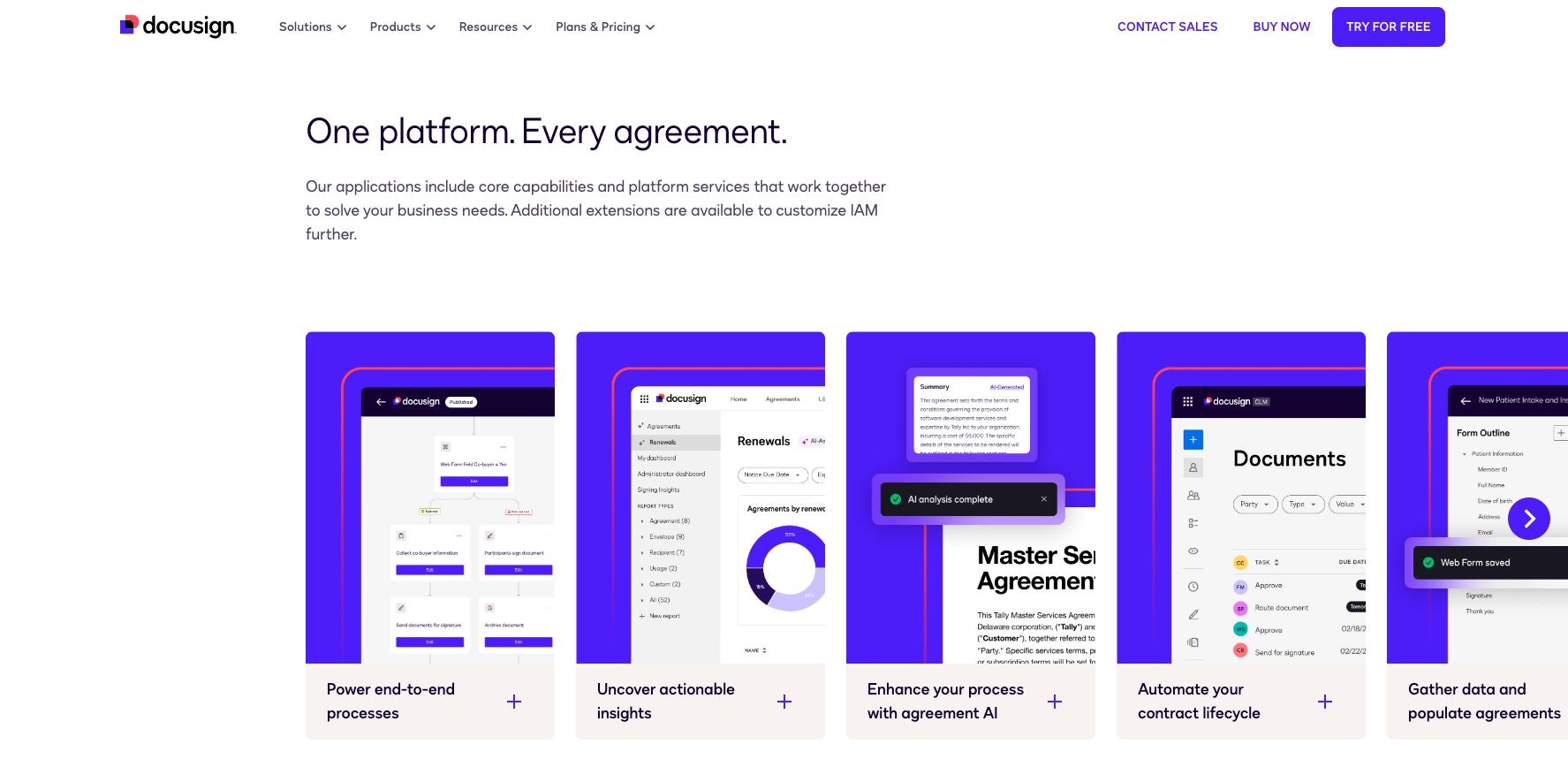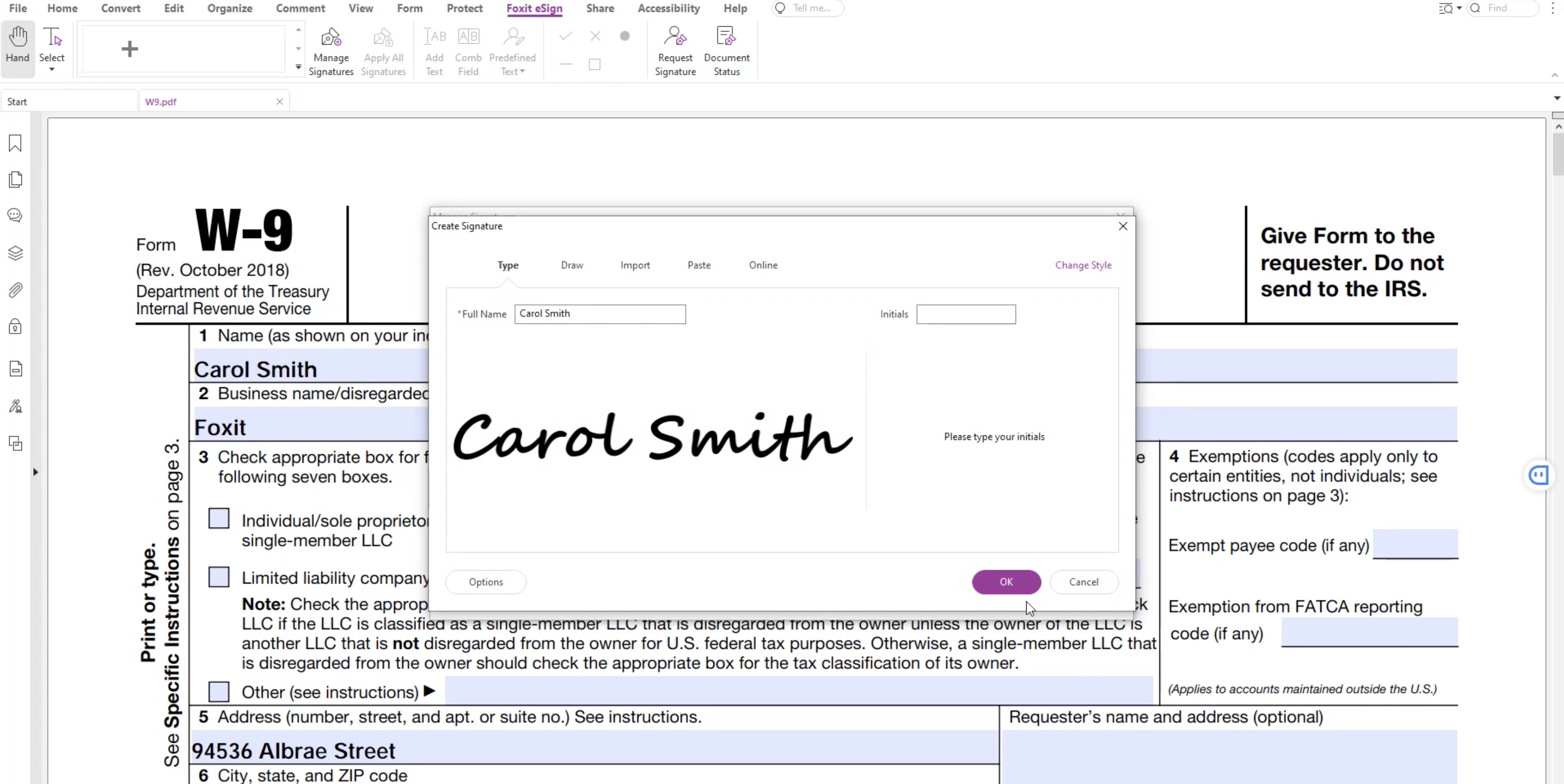There are countless benefits to streamlining your business with an electronic document management system. Without manually printing, signing, and sending files, you not only make processes more efficient, but you also reduce the risk of human error.
However, given the vast number of electronic signature providers available to businesses, it’s tough to know where to get started. Luckily, we’re here to help: Here’s a comparison of features, pricing, benefits, and drawbacks between two popular e-signature options — Docusign vs Foxit eSign — so you can decide which one best fits your needs.
What is Docusign?

Launched in 2003, Docusign was one of the first e-signature providers to come to market, transforming how we sign and manage documents online. Today, more than one million customers use it to sign, send, and manage documents quickly, securely, and efficiently.
Key features
Docusign offers a wide range of features:
- Electronic signatures and notarization: These features allow users to securely create, send, and track signatures in just a few clicks. Users also receive real-time notifications when someone views, signs, or completes documents.
- Contract management: This includes the ability to automate document workflows and generate documents (by importing your data through integrations with Salesforce and other software).
- Identity verification: This feature helps prevent fraud.
- Flexible APIs: You can easily integrate Docusign’s capabilities into your app or website.
Pricing
Docusign offers four plans to individuals and businesses:
- Personal ($10 per month) lets you send up to five documents for signing per month and is limited to a single user.
- Standard ($25 per month per user) includes e-signature tools, reusable templates, shared documents, and the comment feature.
- Business Pro ($40 per month per user) covers everything in the Standard plan and adds a bulk send feature, payment collection, and other advanced fields to prevent user error.
- Enhanced plans (custom pricing) unlock further customizations, including APIs, integrations, and advanced branding for enterprise-level businesses.
Docusign also offers four additional plans specifically designed for real estate.
What is Foxit eSign?

Foxit eSign is a complete e-signature solution that helps users prepare, send, sign, and track agreements. With Foxit eSign, users can quickly and securely sign documents from any device with complete confidence that the document is legally binding.
Key features
Foxit eSign’s key features include the following:
- Document preparation tools allow users to easily upload files and add signer fields. Foxit eSign also has premade templates to make this process even simpler.
- Electronic signature software includes the ability to track the signing process. You can also easily integrate e-signature capabilities into your app or website.
- Integrations allow you to connect seamlessly with platforms like Zapier, Google Workspace, cloud storage solutions (e.g., Dropbox), and Salesforce (available only with eSign Pro plan or higher).
Pricing
Users can choose between three plans:
- eSign Essentials ($120 per year) works well for small companies or departments, it covers 250 documents and gives access to reusable template library.
- eSign Business ($300 per year) is designed for large companies and includes unlimited envelopes and templates. This plan also unlocks custom branding, features that help with HIPAA compliance, and integrations through Zapier.
Docusign vs Foxit eSign: Which one is better?
While Docusign and Foxit eSign both provide similar e-signature services, here’s how they fare in a head-to-head comparison:
- Pricing: While Foxit eSign is cheaper than Docusign, it doesn’t offer a monthly plan, meaning you have to pay for a year up front.
- Features: Although Docusign and Foxit eSign both provide similar e-signature services, they differ when it comes to third-party integrations and the number of templates available — Docusign excels in both areas compared to Foxit eSign, making its products more comprehensive and powerful.
- Usability: Because Docusign has so many robust features, it can feel intimidating to smaller companies that may not need to leverage such a sophisticated suite of tools. If you’re looking for something simpler and more straightforward, Foxit eSign is the better choice.
A Docusign vs Foxit eSign alternative: Jotform Sign
Although there’s no clear winner in the Docusign vs Foxit eSign showdown, we have good news: Jotform Sign is a better alternative. Not only does its ease of use make it perfect for both small and large companies alike, but it also natively integrates with Jotform’s suite of products (in addition to 100-plus other software tools) to offer the following benefits:
- Easy document creation: In one click, you can turn your PDFs and other Jotform documents into secure and legally binding e-sign documents. In addition, Jotform’s drag-and-drop editor has a wide range of customizable settings, allowing you to easily create forms with a professional look and feel.
- Automated document processes: Jotform Sign is built with automation in mind, meaning you can easily add your documents and signers into an approval flow. Jotform’s impressive workflows, complete with notifications and reminders, let you automate the process of tracking and managing documents, saving you time and effort.
- Optimized templates: No matter what type of document you need, there’s no need to build one from scratch. You can easily customize any of Jotform Sign’s 800-plus templates.
To ensure you find the best electronic signature provider for your business needs, take the time to explore different options, talk to sales reps, and sign up for free trials whenever possible.
Send my document for signature
File type is not allowed.
Maximum file size limit exceeded. (5MB)
Something went wrong.
AS ALWAYS, CONSULT AN ATTORNEY BEFORE RELYING ON ANY FORM CONTRACT OR CONTRACT TEMPLATE. THE CONTENT ABOVE IS FOR INFORMATIONAL PURPOSES ONLY.


































Send Comment: